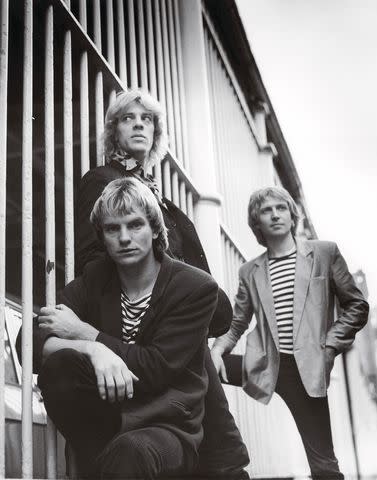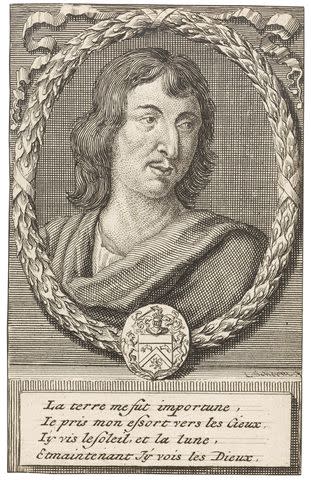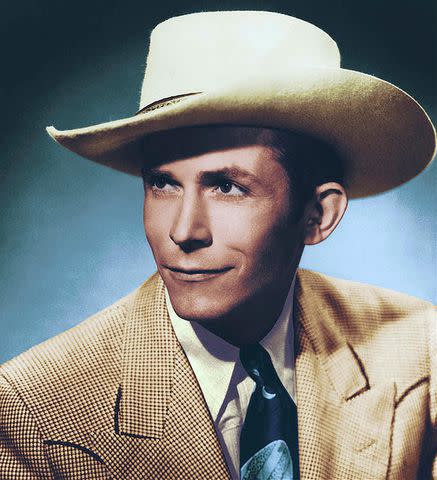Sting Tells Stories Behind Hits, from Prostitutes ('Roxanne') to Bond ('Every Breath You Take') (Exclusive)
- Oops!Something went wrong.Please try again later.
- Oops!Something went wrong.Please try again later.
- Oops!Something went wrong.Please try again later.
The rocker shares the inspirations behind some of his biggest classics with PEOPLE in this week's issue

As evidenced by his prolific catalog, Sting has no problems channeling his thoughts into song. But asking the legendary rocker which of those songs he's most proud of? That's another story.
"That's like asking me which of my kids I prefer!" the star tells PEOPLE in this week's issue. "I think they're all my children and they're all one song, really. And when I perform, I'm singing the story of my life through these sort of touchstones."

Sting, 71, will be honored for his songwriting both as a solo artist and as a member of The Police on May 18, when he's recognized as a fellow of The Ivors Academy, a prestigious music writers' association in his native England.
"If you ask me my profession, I would say I'm a songwriter, so to receive this honor is very special," says the star, whose real name is Gordon Sumner. "I get people coming up to me saying, 'Oh, I got married to your song,' or 'We buried Uncle Charlie to your song' or 'I fell out of love to this…' People mark their lives with the songs of their era, as do I."

For more on Sting, pick up the latest issue of PEOPLE, on newsstands Friday, or subscribe here.
Here, the Rock and Roll Hall of Famer looks back at the unexpected origin stories of some of his biggest hits, inspired by everyone from his family (including wife Trudie Styler, 69, and kids Joe, 46, Fuschia, 41, Mickey, 39, Jake, 38, Eliot, 32, and Giacomo, 27) to Cyrano de Bergerac.
"Roxanne"
The Police's breakthrough hit came about thanks to an unlikely pairing of inspirations: prostitutes and the 1897 Edmond Rostand play Cyrano de Bergerac. Sting says he and his bandmates were playing to "half-empty clubs" in Europe while on tour with Wayne County & the Electric Chairs in the late 1970s, and as a result had to settle for some less-than-desirable lodging, as it was all they could afford.
"We were staying behind the railway station [in Paris], the Gare Saint-Lazare, in an alleyway. And the reason the hotel was so cheap is that we had to share it with ladies of the night," he recalls. "I'd had a pretty sheltered life up until that point, and I was kind of fascinated by the commerce. It was intriguing to me."

Meanwhile, as this was happening, Sting says he also took note of a poster on the wall advertising Cyrano, the main character of which is deeply in love with a woman named Roxanne.
"Those two conflicting ideas — of this beautiful name and this very, very elegant, courtly romance, and what was going on in the hotel — just lit a torch under me," he says. "I went to my room, picked up the guitar and imagined this woman into life."
The track went on to appear on The Police's debut studio album, Outlandos d'Amour, in 1978, and the rocker says that to this day, he remains "very grateful for this imaginary creature," Roxanne.
Related:Diddy Denies Paying Sting $5K a Day in Royalties: 'I Was Joking!'
"All This Time"
Sting says the upbeat track, which appeared on his 1991 album The Soul Cages, was largely inspired by both the death of his father Ernest in 1989 and his childhood growing up near a shipyard on the River Tyne.
"Songwriting is my self-therapy, having to deal with issues that aren't comfortable — mortality being one of them," he says. "I think a song is an empathy machine where people can resonate with the emotion you are expressing, or you can step into someone else's shoes and sing about their life or see the world through their eyes."
"Every Breath You Take"
The chart-topping Police hit appeared on Synchronicity in 1983 and tells the tale of a possessive lover's devotion to his beloved — for better or for worse. Sting says he wrote the song while staying at a house in Jamaica that was previously owned by Ian Fleming, the author of the James Bond series.
"I would sit at his desk at night and try and write songs," he says. "I think if the song has any power at all, it's ambivalent. It could be sinister or it could be quite warm and sweet and nice, and people have both of those interpretations. And I would never contradict anyone who has a different interpretation of any of my songs because in many ways, that enriches the song."
He adds that perhaps he was more inspired by James Bond than he initially thought: "Maybe the ghost of James Bond is in that song, you know? He's our guy, but he also kills people. There's this duality that I think is in the song, and I think that's why it's so successful. Some people get married to that song, so I'm not going to contradict people."
"I'm So Happy I Can't Stop Crying"
Sting says he often leans on the songwriting trick of writing "songs that sound happy, but, actually, they're kind of the opposite," and likes to look for paradoxes in his lyrics, like this 1996 track that featured on his album Mercury Falling.
"I like to enter situations as a songwriter and find a three-dimensional puzzle in there," he says. "'I love you and you love me,' that's a closed loop. There's no way inside. It's boring. Whereas, 'I love you, but you love somebody else,' or, 'I love you, but I shouldn't' — that's interesting. And I think it's a very, very good subject for a song."
"De Do Do Do, De Da Da Da"
If the song's lyrics have always sounded a bit gibberish, well, that's exactly what Sting was going for.
"I got a lot of flak for that song, like, 'How could Sting be writing this nonsense?'" he says of the song, which is featured on the 1980 Police album Zenyatta Mondatta. "All of these songs, like 'Da Doo Ron Ron,' 'Do Wah Diddy Diddy,' they're nonsense songs. I was asking in the song why these are powerful, why these have a valency. But of course, the disingenuous among the critics said, 'This is just rubbish.' That was the point!"
"Let Your Soul Be YourPilot"
The 1996 song, which appeared on Mercury Falling, was inspired by a friend's battle with AIDS — and actually has a happy ending.
"He survived, by the way," Sting says of the friend who inspired the track. "So he's still letting us all be his pilot. It had a good end, that one."
Related:Sting Announces New Vegas Dates as He Dishes on Wife Trudie Styler's Favorite Song
"Don't Stand So Close to Me"
Before he was a rocker notching Top 10 hits like "Don't Stand So Close to Me," Sting was a teacher. His experiences in the classroom inspired this 1980 hit for The Police, which tells the story of a young female student and her relationship with an older male educator.
"It's certainly not biographical, but people having relationships with teachers, it definitely happens," he says. "And in the song's defense, nothing happens. It's just the danger of, something happens and the teacher is aware of it, which is why he's saying, 'Don't stand so close to me.'"
He continues: "Again, you could interpret it many, many different ways, but I still think it's an interesting subject for a song and a sophisticated take on it. But in the current climate, I don't sing that live. People with a sort of puerile sensibility will say, 'Oh it's about you.' And of course it's not, but it's an interesting situation."
"All Four Seasons"
Sting wrote this sweet tune for his child Eliot, whom he calls "very quixotic."
"That's a love song," he says of the track, which appeared on Mercury Falling.
Eliot has followed in their father's footsteps, and is also a musician, as is older brother Joe. They have released three studio albums, including one as I Blame Coco and one as Vaal.
"Fields of Gold"
The barley fields surrounding his home in the English countryside moved Sting to write this ballad, which appears on his 1993 album Ten Summoner's Tales.

"At harvest time, it looks like a sea of gold is waving in the wind. So one day, I looked out there and I thought, 'You know, there's a song here somewhere,'" he says. "I always think about Trudie and the kids when they were younger when I sing that song. It's a lovely memory for me. Often when I sing it live, a couple will get up and dance to it, and I really like that."
"I Hung My Head"
The country-esque track tells the story of a boy who accidentally shoots and kills someone riding a horse while using his brother's rifle. Sting says the song — which was covered by Johnny Cash in 2002 — was inspired his love of Hank Williams, whom he considers a songwriting mentor, and TV Westerns like Bonanza, which he says he was "obsessed" with as a kid.

"The storytelling in those songs really had a profound effect on me, so I would try and write songs in that genre," Sting says. "But with me, it's a question of authenticity. I'm from the North of England, I'm not from El Paso or somewhere romantic like that. But nonetheless, I like the storytelling aspect of country music. I like the sort of biblical sweep of the landscape. So when somebody like Johnny Cash covers one of my songs, I feel vindicated somewhat."
For more People news, make sure to sign up for our newsletter!
Read the original article on People.

